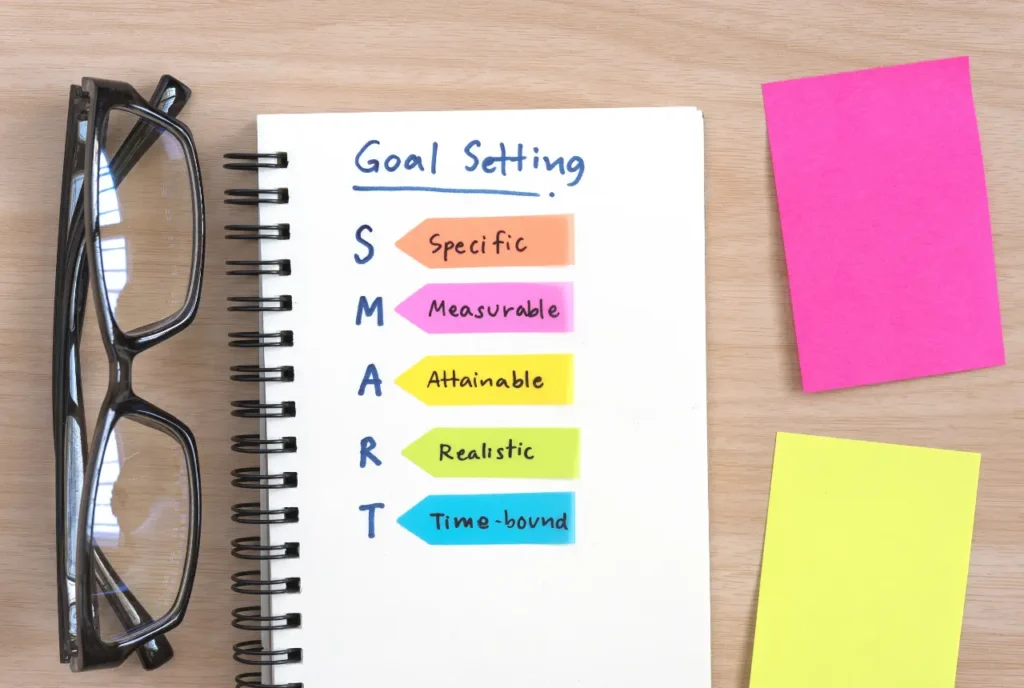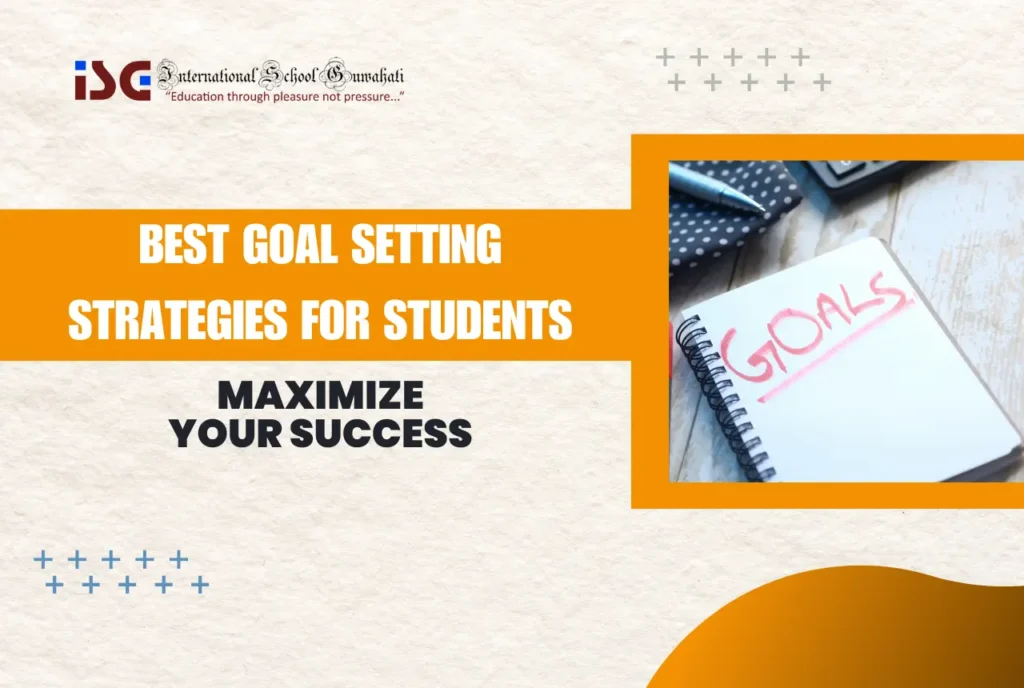Whether you are an elementary school student, a high school student, or a college goer, being able to set goals and prioritize your work is a real-life skill. It is no secret that our academic life is stressful with every standard. But, it is also important to have a one-track mind and a clear, planned-out view of our future. So, here are the best goal-setting strategies for students.
Parents are probably the best individuals to help their kids learn new skills and grow, but it’s also important for kids to learn how to set goals in school. For kids to learn how to set goals well, they should learn how to do it in school and see their teachers and friends do it too.
Why Does Goal Setting Matter So Much?

Before we dive into the actual tips for goal setting, we must understand its importance in students’ lives or anyone’s life in general.
Early Start Means Early Success
Goal-setting mechanics and techniques help students get started with their process early and thus facilitate early success. These wins help boost self-belief and self-confidence in students.
Building Essential Skills
Goal setting is about three primary skills: prioritization, time management, and progress tracking. These are the skills that build the foundation of a strong and successful career in academics and life.
Improves Academic Performance and Reduces Stress
Goal setting has been proven to be effective for improved academic performance. But apart from that it also helps minus a lot of stress and anxiety that stems out of an unplanned approach to academics and life.
A Strategic Approach to Goal-Setting

Here are 7 best goal-setting strategies for students for an empowered academic performance.
Write Clear and Measurable Goals
Dreams can come true but not every one of them is achievable. Therefore, students should be encouraged to define their goals in a way that is achievable and easy to understand and approach.
- For example, instead of saying that you want to improve your overall grade, you focus on the subject that you are lagging behind in.
- Break down big goals into chunks that are more achievable on a daily basis or weekly basis.
Use the SMART Criteria
Certain techniques like the SMART criteria can help approach goal setting or academics as a whole in a better way.
- Specific: Objectives must be precise and targeted.
- Measurable: Learning outcomes ought to be monitored by students.
- Achievable: Objectives must be reachable and reasonable.
- Relevant: Objectives ought to be in line with their values and goals.
- Time-bound: Establish due dates to instill a feeling of urgency.
Actions Speak Louder Than Words
You should have a laid-out action plan for every chunk of the big goal you have. Students are able to identify the resources, abilities, and assistance required to accomplish their goals by breaking them down into smaller steps.
- Make a routine and stick to it for a little bit of progress every day.
- Revise and revisit concepts and chapters you have already finished. This will keep them in your memory.
Regularly Assess Your Progress
The human mind is wired to progress earning rewards on the way. Therefore, it is necessary that you assess your progress regularly to keep yourself motivated. Studies have shown that the reward system in almost every aspect of our lives keeps us more motivated and on track.
- First, use your past success to set both short-term and long-term learning goals.
- Make interesting lesson plans that cover the necessary material while keeping your learning goals in mind.
- To better understand, think about different ways to teach, interactive activities, and multimedia tools.
- Use quizzes, tests, and exams to regularly check your knowledge and skills.
Stay Accountable
Goals work better when you have someone reliable to keep your mind on them and from distracting. Students can talk to their teachers and ask them to help them along the journey.
- Talk to someone about your goals, like a family member, friend, or teacher.
- Accountability builds loyalty and gets help from outside sources.
Set a Deadline
It’s helpful to give yourself a deadline for when you want to reach your goal. This will help the students stay on track and excited. Humans work better when put under a deadline therefore, setting a deadline will put us under pressure to keep our motivation level up.
Learn From Setbacks
Setbacks are common and practically speaking, they make us learn a lot more than the action plan we have. So, don’t fear getting setbacks but be determined to get up again and accept the challenge.
- Prepare for problems and failures.
- Help people be more resilient by seeing losses as chances to learn.
- Celebrate the little wins along the way.
- Celebrating important goals keeps the momentum going and boosts motivation.
Goal-Setting at Different Stages

Effective Goal setting strategies for students are different at different stages. A schoolgoer will have a different academic goal than a college student. Here is an average breakdown.
Primary and Intermediate Education
- Building Blocks: Present goal-setting at a young age. Youngsters can be taught to create and work toward goals that are personally important.
- Modeling by instructors and Peers: Observing instructors’ and peers’ goal-setting in action promotes effective goal-setting.
Academic Performance in High School:
- Establishing goals enables kids to understand expectations and practical ways to meet them.
- Classroom Management: The procedure is more manageable since it is scaffolded.
College Personal and Academic Goals
- Students can make plans for their well-being, growth as a person, careers, and academics.
- Long-Term Vision: By creating goals, individuals help to mold their future into what they want it to be.
In Conclusion
These goal-setting strategies for students are more than just words on a screen; they’re the key to your academic success. Remember that acting is what gives you power. So pick your best method, make a SMART goal, and post it in the comments to hold yourself accountable. Don’t forget to enjoy your wins, no matter how small they are. They will help you on your way. Remember that you can always learn something new, so keep looking around, trying new things, and setting goals that will push you to grow.








